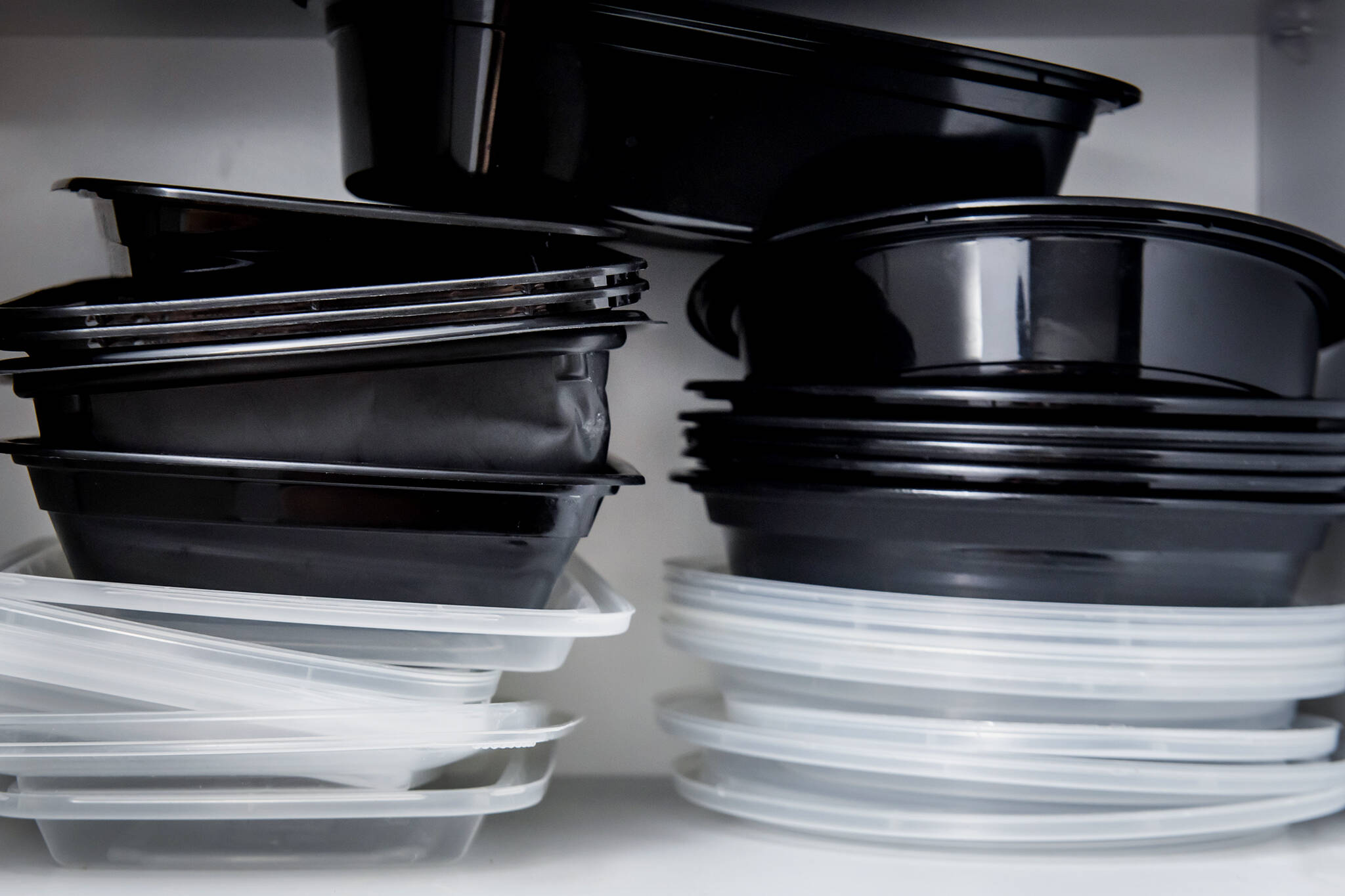
This is what you can do when you're done with black food delivery containers in Toronto
Many of us in Toronto try to wash and reuse those black food delivery containers when we're done with them, but after a year of ordering meals, they can start to pile up. Instead of just ditching them, you can actually donate your clutter to a good cause.
Toronto's Food Not Bombs has actually been collecting and reusing cleaned food delivery containers since 2017, partnering with Allan Gardens Food and Clothing Share to serve nutritious vegan food to often over 150 people in a day, many of them unhoused.
While the pandemic completely changed the way they operate, it also brought with it a new surge of volunteers where they'd previously been working with only around five to 10 at a given time.
"Since we suddenly had more than enough help at the Allan Gardens servings, a group of volunteers who had been cooking with Food Not Bombs for years (Squid Lutz, Aidan McKendrick, Ben Baird, Lam Nguyen, Molly McGregor and I) decided it would be a good idea to diversify our efforts and do a serving for one of the encampments," Nicole Davis of Food Not Bombs told blogTO.
"Aidan had just organized a winter clothing drive, so we started bringing clothing and supplies to the Alexandra Park community. We talked to the community members living at the encampment to get a feel for what kind of food and supplies they might want, then started our off-branch of the organization, Food Not Bombs Alexandra Park."
Over the course of the pandemic, Davis has found the response to their initiative to be very positive from both the donating community and those receiving meals served in the delivery containers.
"We all started saving our food containers, then Aidan put out the first call-out for containers on the zero-waste page and we got a huge response. Once or twice every week, a few of us would cook warm, nutrient-rich meals in our separate kitchens, often pasta dishes, chillies, and other hearty vegetable-rich dishes," says Davis.
"People have been so kind and receptive. They've said that there are a lot of groups bringing out snacks and supplies, but that they hardly ever get to have a nice warm meal. We always try and put a lot of love and care into the dishes, and make sure they are tasty, nutritious, and hot when people get them."
While collecting food delivery containers isn't new for Food Not Bombs, they've been specifically requesting those black ones for a reason.
"We've been collecting containers for years as part of the serve ethos of reusing whenever possible, but focus on the black food delivery containers in the pandemic because of their increased temperature capabilities, ease of transport and storage, and being able to stack them with one container per dish," Ben Baird of Food Not Bombs told blogTO.
"The estimated number of containers per person is three to four, and we use a range of 40 to 60 containers a week. Over the last few weeks, we've been freezing batches of meals so that there's easy access to meal choices for our community members to have options for their meals, and to prepare for any mobility or resource concerns for our team down the line."
Baird says through this process, they've used over 100 containers in their branch, and expects to use many more as branches continue to collaborate on this. However, though Davis says the reaction to their initiative has been great and she's pleased with how much it's grown, she's still disappointed that the encampments even have to exist.
"Every week when we talk to people at the park, we hear a new horror story of the police coming and destroying someone's home in the middle of the night, pointing guns and Tasers at them, shoving and holding them down into the cold mud, and generally terrorizing them," says Davis.
"I'm really glad that we've started the encampment project. A home-cooked meal is one small way for people to know that someone actually cares about their well-being, even when our government says every day through their actions that they do not care."
The efforts of Food Not Bombs have now extended way beyond Alexandra Park, and you can get in touch with them to find out how you can continue to help and donate your clean, used containers.
"We had lots of other volunteers within Food Not Bombs wanting to join the encampment project, but we figured we had plenty of volunteers at Alexandra Park already, so we encouraged people to start serving other encampments," says Davis.
"It's been amazing to watch this project grow, and now we serve a number of encampments, multiple times a week, and are getting a huge amount of food and supply donations."
Food Not Bombs is currently no longer taking donations for the time being. You can now download the Case app to find out where to drop off black food containers.
Hector Vasquez
Latest Videos
Latest Videos
Join the conversation Load comments







